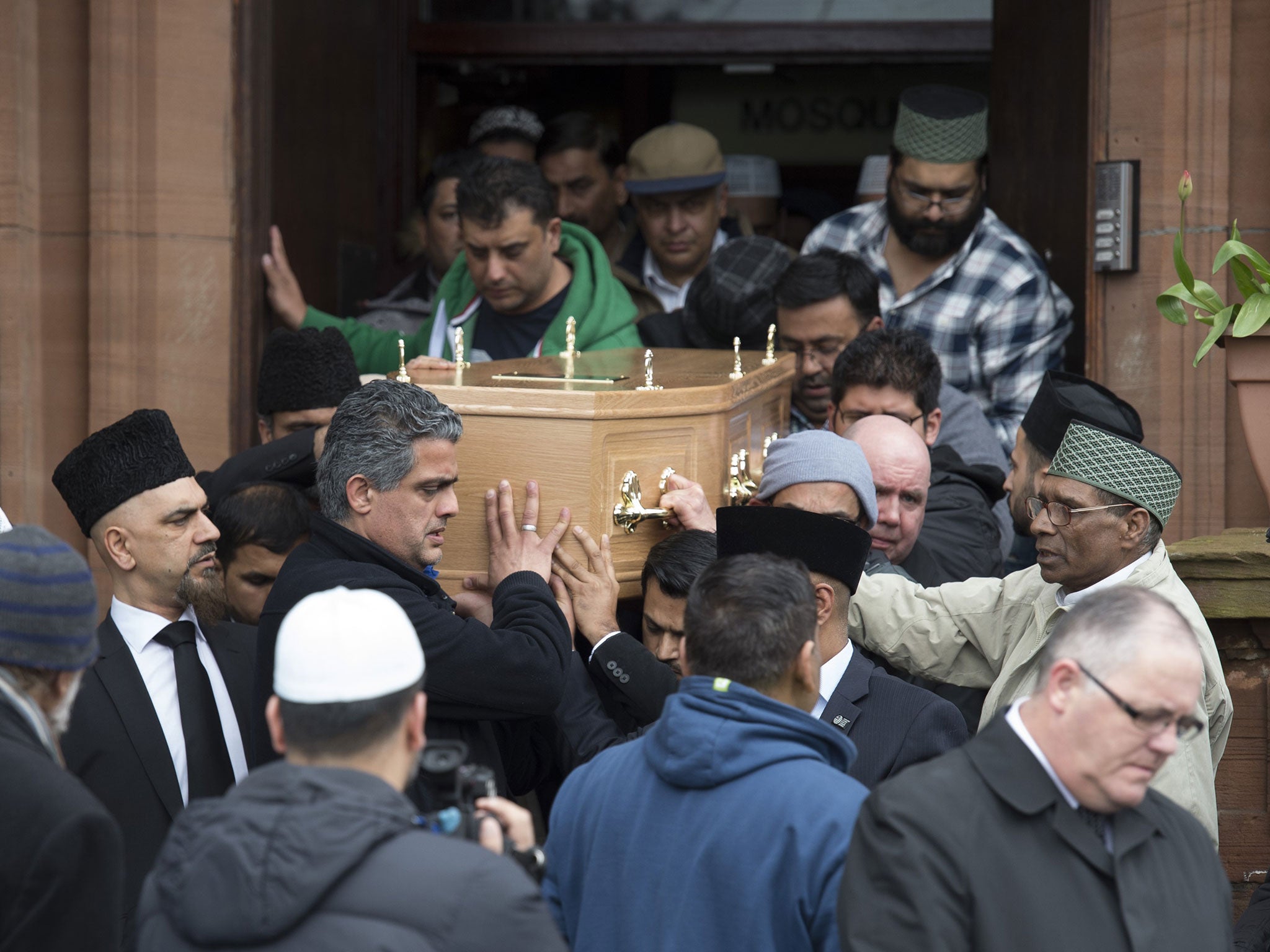Anti-Ahmadi hate crime has gone unchecked for too long – and the consequences are terrifying
A personality cult has developed around Tanveer Qadri, the jailed murderer of Asad Shah, with groups of young men praising him and religious sermons glorifying his terrible actions

Anti-Ahmadi hatred is a form of sectarian racism that has long gone unchecked because of its deep pervasiveness within some Muslim communities. It has been bubbling under the surface for centuries, fuelled by the belief that Ahmadis are not true Muslims but heretics who do not believe that the Muhammad is the final prophet – even though many Ahmadis would disagree with that interpretation of their faith.
This widespread hatred was brought to the forefront of Muslim life in the UK after the brutal murder of Asad Shah, a shopkeeper in Glasgow, who some said had claimed that he too was a prophet in a controversial Facebook post.
His murderer, Tanveer Qadri, has leaked audio statements from inside his prison cell explaining why Ahmadis are heretics and justifying his actions. Such rhetoric has also been rehashed and glorified by influential Pakistan-based Sufi scholars and religious leaders such Allama Mufti Khadim Hussain Rizvi. With more than 195,000 Facebook followers, Khadim Hussain Rizvi has spoken of Qadri as one of Islam’s “warriors”.
For the vast majority of us, theological debates are just that – debates. Muslims can accept certain positions or interpretations of their faith, or they can reject them. Of course, the right to believe that Ahmadis are heretics is neither criminal nor illegal. But it is highly offensive to Ahmadi communities, as it denies their identity, and it can fuel sectarian violence too.
There has been sharp rise in anti-Ahmadi hate incidents since they were first recorded. In the months since the brutal murder of Asad Shah, there were 29 incidents to 1 July 2016. These included discriminatory messages and graffiti outside mosques, the verbal abuse of Ahmadi children and threats of violence against members of the community in the UK.
We also found that there has been a development of a personality cult around Tanveer Qadri, with groups of young men praising him and religious sermons glorifying him being held in Pakistan. In one video, the preacher Khadim Hussain Rizv states that he talked to Tanveer from prison in Scotland; he is met with shouts of hysterical and ecstatic praise from devotees.

In fact, supporters of Tanveer view him as continuing the work of Mumtaz Qadri, the man who was executed for the 2011 murder of socially liberal Pakistani politician Salman Taseer.
Sympathisers of such views seek to redefine Islam through a narrow lens which allows fundamentalists to dictate the Islamic narrative and to use “takfirism” – the use of apostasy – in order to define those who stand outside Islam. It has led to acts of moral and religious ‘righteousness’ among other Muslims such as the boycotting of Ahmadi businesses in the UK and the targeting of Ahmadi children in schools by other children.
This hate has gone unchecked for decades, and there has been no clear counter narrative about the huge input that Ahmadi communities have made to the lives of Muslim communities in the West. Some of the early work of Ahmadi missionaries offered a message to black converts in the US which opened them up to new horizons of Islamic teaching – and one of those converts was Malcolm X.
In the UK, Ahmadi missionaries helped to form and create some of the earliest registered places of worship. Yet this is little recognised within mainstream Muslim thinking today. The airbrushing of Ahmad influence in Muslim life has become widespread and the dehumanisation of this community has become the norm.
The murder of Asad Shah is a wake-up call for Britain. We cannot allow hate like this to spread unchecked. It’s time to tell a different story about the Ahmadi people.
Fiyaz Mughal is the founder and director of Faith Matters, which this week published a report on anti-Ahmadi discrimination entitled 'Sectarianism, extremism and hate crime'
Join our commenting forum
Join thought-provoking conversations, follow other Independent readers and see their replies
Comments
Bookmark popover
Removed from bookmarks